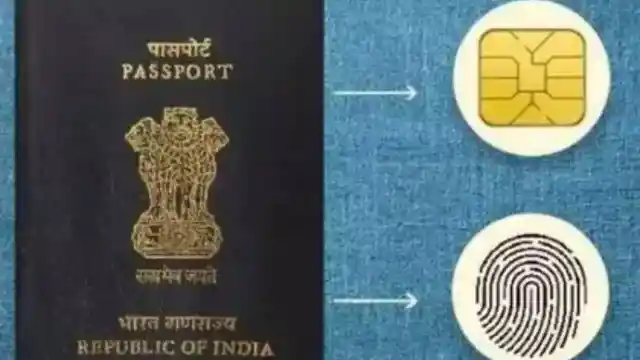The Indian government has officially introduced e-passports to simplify international travel and improve airport efficiency. This move is part of the Passport Seva Program (PSP) 2.0, aimed at digitizing passport services. The e-passport project began as a pilot on April 1, 2024, and is now available at select centers across the country.
Cities with e-Passport Access
As of now, e-passports are being issued only from select Passport Seva Kendras (PSKs) and Regional Passport Offices (RPOs) in cities like Chennai, Hyderabad, Bhubaneswar, Surat, Nagpur, Goa, Jammu, Shimla, Raipur, Amritsar, Jaipur, and Ranchi.
What Is an e-Passport?
An e-passport is a regular passport enhanced with a small RFID (Radio Frequency Identification) chip and antenna embedded in its cover. This chip securely stores key personal data, biometric information like fingerprints and facial recognition, and enhances security. You can recognise it by the gold-colored chip logo on the cover.

How to Apply for an e-Passport
- Sign up on the Passport Seva portal.
- Log in with your registered credentials.
- Choose “Apply for Fresh Passport/Re-issue of Passport.”
- Make the payment and book your appointment at a nearby PSK or RPO.
- Carry the payment receipt or SMS confirmation when you go.
- Visit the center with original documents for verification and biometric capture.
Key Features of e-Passports
- RFID chip embedded in the cover.
- Stores biometric data (fingerprints, digital photo, iris scans).
- Contains full personal details like name, birthdate, and passport number.
- Allows encrypted, contactless data exchange.
- Follows ICAO (International Civil Aviation Organization) guidelines.
- Helps prevent identity theft and document fraud.
India’s e-passport initiative marks a major step in secure and efficient global mobility, combining technology with ease of use for modern travelers.
